Trump says 'we'll know next week' about Kim summit
Pyongyang says it plan to completely destroy the Punggye-ri facility in the country
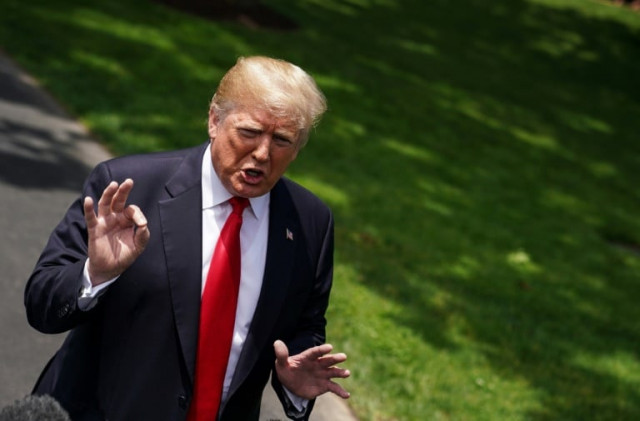
PHOTO AFP
"On Singapore we'll see. It could very well happen," Trump said of the on-again-off-again June 12 meeting, which has been as keenly teased as any of his "The Apprentice" season finales.
"Whatever it is, we'll know next week."
And in an interview to air Thursday morning on one of the president's preferred programs, Fox & Friends, he said "there's a good chance" the talks would take place.
"If that happens, it would be a great thing for North Korea. Listen, it would be a great thing for the world, so we'll see what happens," Trump said in the interview, according to excerpts released by Fox.
Hand-picked aides — including deputy chief of staff Joe Hagin and deputy national security adviser Mira Ricardel — are travelling to the Southeast Asian city state designated to host the summit, officials said.
Trump, Moon discuss North Korea's threat to scrap summit
They are expected to meet their North Korean counterparts and iron out details of the meeting.
The top diplomat from Pyongyang's traditional ally China on Wednesday expressed hope for a successful meeting, as planned.
"If you want to solve the moment now is the time, if you want peace now is the time, if you want to make history now is the time," Chinese Foreign Minister Wang Yi said in Washington, alongside his American counterpart Mike Pompeo.
The US Secretary of State said whether the summit goes ahead is now up to North Korea.
Asked in a hearing of the House Foreign Affairs Committee if the summit will take place, Pompeo replied: "That decision will ultimately be up to Chairman Kim."
"He asked for the meeting, the president agreed to meet with him," Pompeo said. "I'm very hopeful that that meeting will take place."
His remarks reflect an effort to perhaps lay the groundwork for blame should the talks fail.
Ostensibly the Trump-Kim talks will be about peace on the Korean peninsula and North Korea's nuclear and ballistic weapons.
But even before talk of test freezes, decommissioning or inspections, Washington and Pyongyang are engaged in a public relations battle.
As part of a charm offensive, North Korea invited some foreign journalists to witness the slated destruction of the isolated regime's nuclear test site.
The gesture, which experts agree would do little to curb North Korea's long-term nuclear capabilities, is meant to signal that the regime is serious about change.
Pyongyang said it planned to "completely" destroy the Punggye-ri facility in the country's northeast when it made the surprise announcement earlier this month.
Washington and Seoul welcomed the move.
Punggye-ri has been the staging ground for all six of the North's nuclear tests, including its latest and by far most powerful one last September, which Pyongyang said was a hydrogen bomb.
The demolition is due to take place sometime between Thursday and Friday, depending on the weather.
Although portrayed as a goodwill gesture ahead of the Kim-Trump summit, both sides have since raised doubts that the historic encounter will take place.
Last week, Pyongyang threatened to pull out if Washington pressed for its unilateral nuclear disarmament. Trump also said the meeting could be delayed as he met with South Korean leader Moon Jae-in in Washington on Tuesday.
Politically, Trump has invested heavily in the success of the planned summit, leading most US officials and outside observers to believe it will go ahead.
Trump promises North Korea's Kim can stay in power
But as the date draws near, the differences between the two sides are coming into sharp relief.
Washington has made it clear it wants to see the "complete, verifiable and irreversible denuclearization" of the North.
Pyongyang has vowed it will never give up its nuclear deterrence until it feels safe from what it terms US aggression.
Observers will be watching this week's demolition ceremony closely for any clues to the North's intentions.
Experts are divided over whether the demolition will render the site useless. Sceptics say it has already outlived its usefulness and can be quickly rebuilt if needed.
Previous similar gestures by the North were rapidly reversed when the international mood soured.
But others say the fact that North Korea agreed to destroy the site without preconditions or asking for something in return from Washington suggests Pyongyang's sincerity.
Go Myong-hyun, an analyst at the Asan Institute for Policy Studies, said both sides were playing "a game of chicken" in the run-up to the summit "to gain an upper hand in negotiations".
He said the site's destruction would win Pyongyang international sympathy even if the summit collapses.
"North Korea can say to the international community that it did its best to achieve denuclearization through negotiations but was pressured by the United States and couldn't do it," he said.
On Seoul's streets Wednesday, South Koreans were circumspect about whether they thought Pyongyang was genuine.
"I don't really have any faith," said Korean-American businessman Peter Chung. "But... I hope for the best."

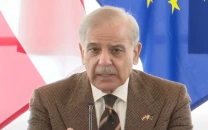
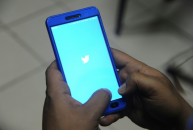
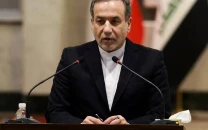


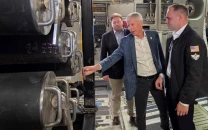











COMMENTS
Comments are moderated and generally will be posted if they are on-topic and not abusive.
For more information, please see our Comments FAQ